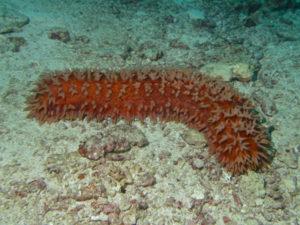 Sea cucumber is being used in traditional Chinese medicine for more than hundred years. This herb has shown to kill cancer cells and prevent tumor growth. It is known to treat a wide variety of illness including lung cancer. In various studies, sea cucumber has shown the ability to kill lung cancer cells. As it can kill cancer cells effectively, it may help in treatment of lung cancer.
Sea cucumber is being used in traditional Chinese medicine for more than hundred years. This herb has shown to kill cancer cells and prevent tumor growth. It is known to treat a wide variety of illness including lung cancer. In various studies, sea cucumber has shown the ability to kill lung cancer cells. As it can kill cancer cells effectively, it may help in treatment of lung cancer.
Though Sea Cucumber has been in use for long in the traditional medicine but it is not well known in the Western medicine. Most practitioners use chemotherapy, radiation and other therapies as primary cancer treatments. But, studies have found that the risks of chemotherapy are far greater than any side effect of sea cucumber. In fact, this Chinese herb does not come with any known risks.
It has a cucumber-like shape and range in sizes from an inch to may be 6.5 feet. There’s a compound found in sea cucumber that works to fight multiple types of cancer such as lung, breast, skin, liver etc. It works to prevent the process in which the tumor grows new blood vessels. In addition to preventing the growth of cancer cells, this Chinese herb works to kill cancer cells right away.
In addition to killing cancer cells, Sea Cucumber also activates your immune system. This further allows your body to fight back against cancer in a more natural way. This herb has impressive components of vitamins and minerals such as vitamin A, B1, B2, Calcium, iron, zinc etc. It also works to treat a wide variety of ailment like asthma, high blood pressure, joint pain, fatigue and more.
As sea cucumber is still in its experimental phase, it is not offered in the market for treatment of lung cancer. You should always consider opinion of your health practitioner before making any changes in the medications or treatment.
What are your thoughts about the effectiveness of sea cucumber in lung cancer treatment? Share your views with us in the comments.
The information offered in this blog is for educational purposes only and is certainly not a substitute for medical advice.
| Image courtesy of Bernard DUPONT from FRANCE (Sea Cucumber (Thelenota ananas)) [CC BY-SA 2.0], via Wikimedia Commons |
